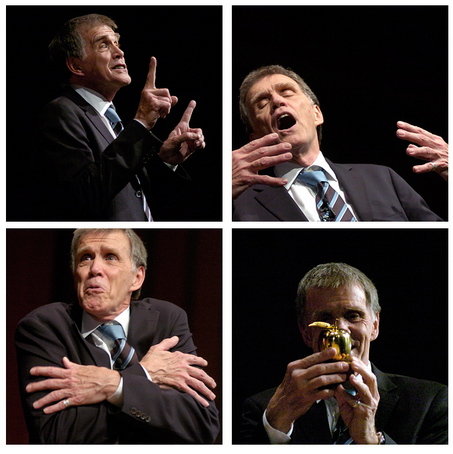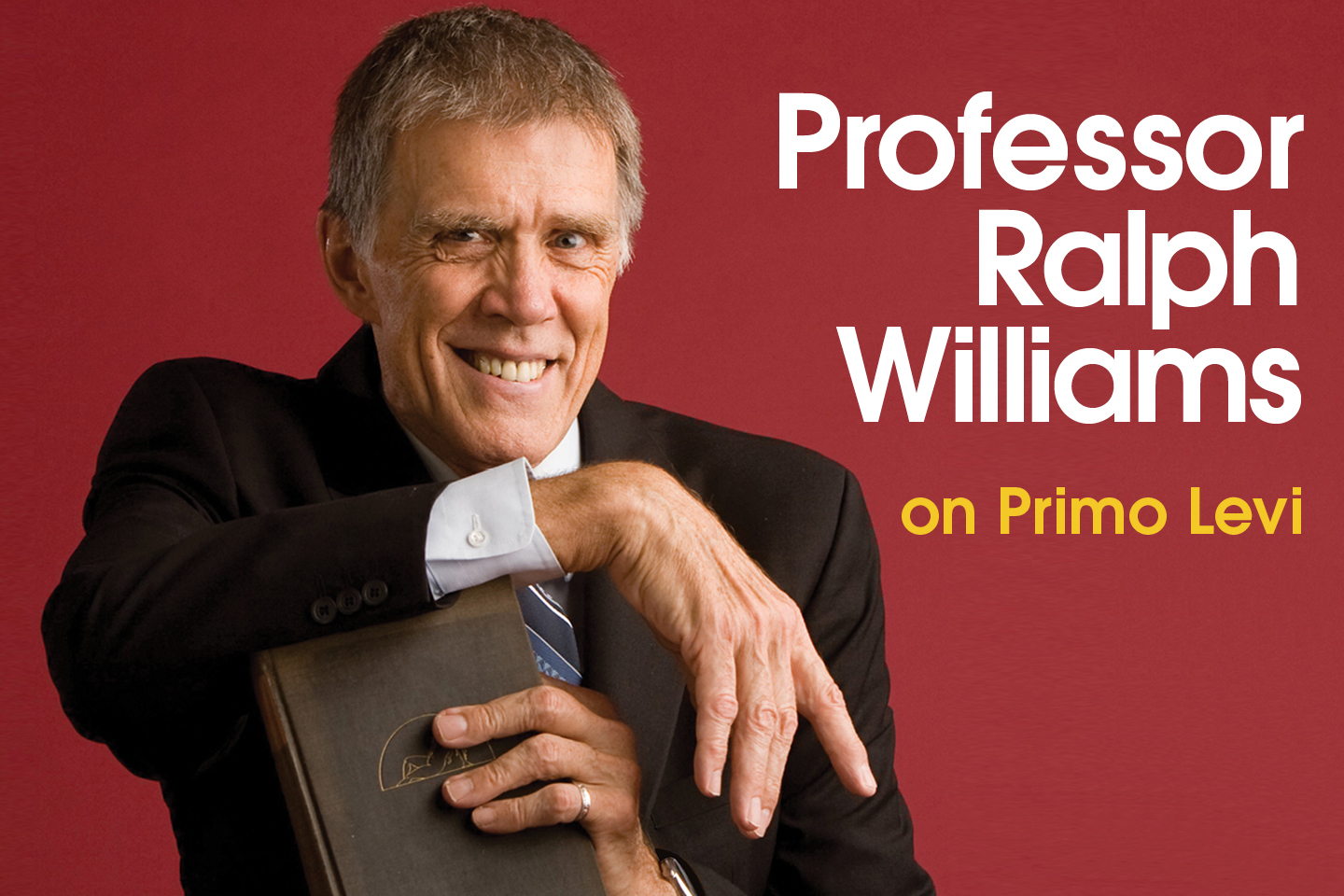The Life and Times of Primo Levi
By Vivian Henoch, Editor myJewishDetroit
September 1, 2016
A chemist, writer and arguably the most extraordinary and enigmatic voice of the Holocaust, Primo Levi was born in 1919 in Turin, Italy. A survivor of Auschwitz, liberated by the Red Army in 1945, Levi started writing poetry and prose that reflected his urge to bear witness, choosing to relate his story with the calm, reasoned detachment – and gentle humor – of a scientist. His body of work includes essays, fiction and memoir – the most famous of which include Survival in Auschwitz (1947), The Reawakening (1965) and The Periodic Table (1975), named by Royal Institution of Great Britain on the shortlist of the best science books ever.
“I am a normal man with a good memory who fell into a maelstrom and got out of it more by luck than by virtue, and who from that time on has preserved a certain curiosity about maelstroms large and small, metaphorical and actual.” – Primo Levi, The Mirror Maker, Stories and Essays, 1985.
Appearing for the first time as a special guest lecturer for Federation’s FedEd courses for adults and immensely popular among students in the Department of English, Language and Literature at the University of Michigan, Professor Emeritus Ralph Williams is well known for his intellect, his showmanship and compelling lectures. A speaker of 15 languages, he specializes in Medieval and Renaissance literature, Shakespeare, literary theory, comparative literature and Biblical studies. Though his courses have covered a wide range of literature, from the Bible and Chaucer, to Frederick Douglas, the writing of Primo Levi continues to engage his curiosity and study.

Here in brief discussion with myJewishDetroit, Professor Williams offers some insights into his abiding interest in Primo Levi and what to expect from his three-part lecture series, Primo Levi and the Memory of the Offense – on Wednesday evenings, starting September 21, at 7 pm at the Max M. Fisher Federation Building. The cost of the series is $50 and registration is required. Please call 248-205-2557 for details.
Q & A with Professor Ralph Williams
Q: As a professor of English Language and Literature specializing in Medieval and Renaissance literature, what prompted your interest in Primo Levi?
A: Growing up in Canada, a gentile, I simply had not heard of the Shoah (Holocaust). When, after coming to the U.S. I did, it seemed to me to contradict everything most basic about us humans that my education had encouraged me to think–that to be human is to be, all things considered, humane; to be of humankind meant, all things considered, that we would and should be kindly. I was shaken to my depths and could not absorb it.
I love Italian culture and was referred to Primo Levi’s works. I have found in him a great friend of the mind and spirit. He has one of the most honest, morally cleanest minds I know – a writer of great depth of feeling and lucidity of mind.
Q: How long have you been teaching the literature of Primo Levi?
A: I have been teaching Levi’s works since the early 1990’s; I wanted to discuss with the next generation the events and what those events mean about us as humans.
Q: How have your students responded to his writings?
A: My students have characteristically found Primo Levi’s works one of their foundational intellectual and moral experiences. The class was voted, at one point, the best in the University. That is a credit to Primo Levi and to my students.
Q: You have said that you regretted never having had the opportunity to meet Primo Levi. Is there one question you might have asked him?
A: I would have wished to have him explore, yet further, the moral challenges of remembering bottomless horror, and communicating about it, without being absorbed into its darkness. His works stay in the light, even given his matches memory and his fierce moral commitment. And, I would wish to have said thanks, pure thanks.
Q: Do people need to be familiar with Levi’s works to appreciate the class?
A: The class will not presume any knowledge of Primo Levi or detailed knowledge of the Shoah. Levi speaks as a human to humans; he faced a circumstance unique in some ways, but features of which surround us yet and are within us and our culture.
Q: Is there one book you would recommend as an introduction to Levi’s writing?
A: There is yet to be written the book which I would recommend in this circumstance: there are important, large books on his life and works, but they are not aimed at being introductions of the sort you might wish. I hope to write such a book.
Q: You have written that the work of Primo Levi “arguably constitutes one of the major moral and stylistic voices of this Century.” How is his work relevant today? And, what is the role of memory in forming our social experience?
A: Our identity as individuals and as peoples is formed out of our memories. We are our memories. It is essential that we retain the memory of the Shoah as part of our self-understanding as humans, and keep that memory in discussion as we try to form a better, fuller, more human future.
Primo Levi and the Memory of Offense
The three-part lecture series Primo Levi and the Memory of the Offense with Professor Ralph Williams begins on Wednesday, September 21, from 7-8 pm at the Max M. Fisher Federation Building, 6735 Telegraph Road, Bloomfield Hills. The cost of the course is $50. Scholarships are available upon request. This series is offered through Federation’s Adult Jewish Learning Department, FedEd, and co-sponsored by University of Michigan Hillel; the JCC’s SAJE (Seminars for Adult Jewish Enrichment); and the Holocaust Memorial Center, Zekelman Family Campus. For information or to register call 248-205-2557.




